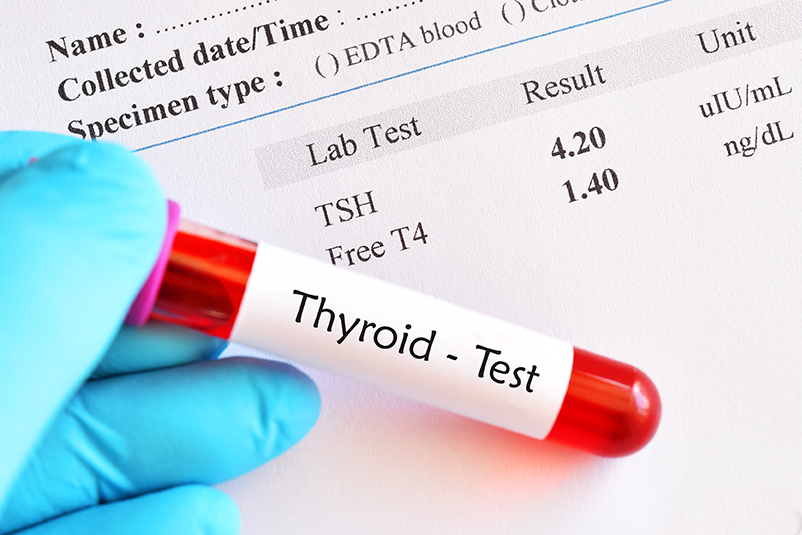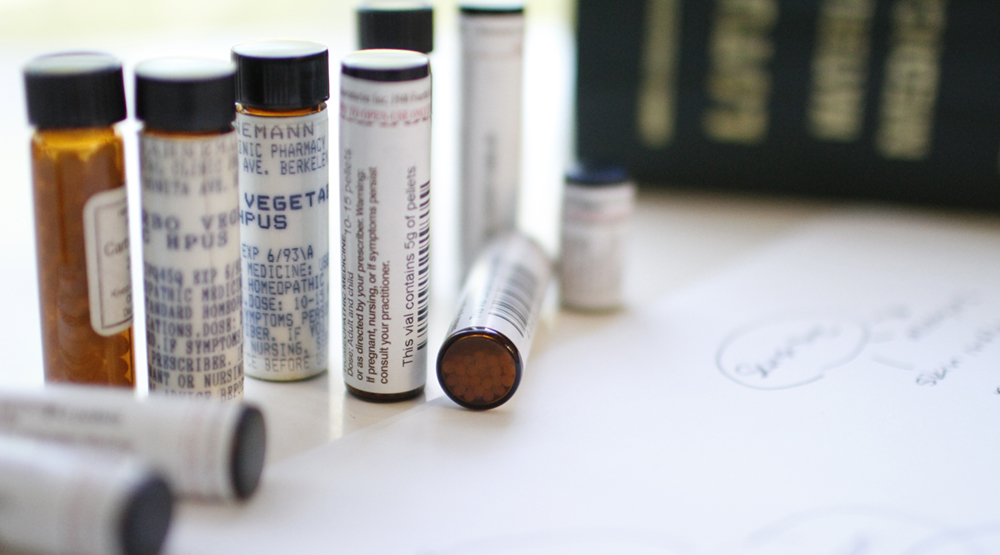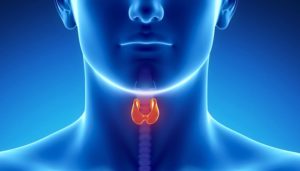It is World Thyroid Day, which means it’s a day to celebrate a small, but vital organ that you may never have considered until now. Your thyroid gland is a butterfly shaped gland in your neck that is part of the endocrine system. It creates hormones that play a vital role in in your body, providing every cell of your body with energy through a complex and elegant system.
Unfortunately, this system is intricate and can be vulnerable to assaults from our toxic environment. These assaults may cause a breakdown, and thyroid function may be compromised. Stress, food intolerances, chronic infections, toxins, and inflammatory foods can all be responsible for assaults that result in thyroid dysfunction.
The thyroid can be under functioning or overstimulated, and there are autoimmune diseases specific to the thyroid; Hashimoto’s and Grave’s disease. Hashimoto’s thyroiditis is estimated to affect 20% of the population of the US. Many people have it and don’t even know it. Testing is easy and there are many steps you can take to heal your body once you find out if you are hypothyroid, hyperthyroid or have autoimmunity. If you have any family with Hashimoto’s, it is imperative that you get yourself tested, as there is a very strong genetic component.
A short, but real story:
I have two boys; who are now 15 and 18. They were apparently healthy and normal as 9 and 12 year olds. My 12 year old was hot and hyperactive. I had to give him melatonin at night because he simply could not go to sleep. He talked non-stop and was widely considered to be the living embodiment of the Energizer bunny. He had emotional lability (unstable moods and emotions) and anxiety. My 9 year old was tired all the time, could not get out of bed in the morning and was too tired to do any physical activity. He was bundled up in a blanket all the time, seemed sad for no reason and had tremendous anxiety.
BOTH MY BOYS WERE DIAGNOSED WITH HYPOTHYROIDISM AND HASHIMOTOS.
Yes, two little boys, ages 9 and 12, diagnosed at the same time with dysfunction and autoimmunity. It seemed crazy to me, and it seemed unlikely considering their opposite presentations. This is how hidden thyroid dysfunction can be. My boys are now taking thyroid hormone and get excellent homeopathic support. They live vibrant, full lives, and their hypothyroid symptoms have subsided.
Wondering if this could affect you and your family? Here’s what to do:
Step one: Consider how you feel.
Symptoms of thyroid dysfunction are varied and insidious, you may have just thought they were normal or how you’ve always felt. Here is a list of some of the most common thyroid dysfunction symptoms:
- Fatigue/Drowsiness
- Hair Loss
- Cold intolerance
- Inability to lose weight
- Sadness/Depression
- Mental fog/forgetfulness
- Joint pain/inability to recover from injury
- Acne
- Puffy face
- Acid reflux
- Stomach pain
- Morning fatigue
- Irritability
- Palpitations
- Night sweats
- Emotional lability
- Weight loss
- Nervousness
- Anxiety
- Feeling hot
- Trouble sleeping
- Apathy/feeling numb
- Vertigo
- Nausea
- Thyroid swelling/goiter
Step two: Get tested by a functional medicine doctor
The testing is simple and accessible, available from your doctor or direct-to-patient labs online
You need the following tests:
- TSH (thyroid stimulating hormone): optimal range 1-2
- Free T3: optimal range 2.5-3.5
- Free T4: optimal range 1-1.5
- TPO antibodies: optimal range is negative or zer0
- TG antibodies: optimal range is negative or zero
It’s important to note that the optimal lab ranges are not the same as the reference ranges on most thyroid lab tests. The ranges listed above have been agreed upon by functional medical doctors to be the ranges that healthy people feel best. Traditional reference ranges may look normal, but you may still have dysfunction and not feel well.
Step three: Get thee to a homeopath
 There is excellent homeopathic treatment for thyroid dysfunction. As with all homeopathic care, treatment is tailored to each individual, and may include a chronic or constitutional remedy, as well as low potency therapeutic remedies to support thyroid function and repair. Homeopaths work in conjunction with your medical doctor to provide care for you and your thyroid. Being on medication is not an impediment to working homeopathically. Remember that homeopathic remedies are working on the root cause of your dysfunction, to repair and regulate, while synthetic thyroid hormones are providing the essential ingredients missing from your endocrine system. Both work together to return you to vibrant health.
There is excellent homeopathic treatment for thyroid dysfunction. As with all homeopathic care, treatment is tailored to each individual, and may include a chronic or constitutional remedy, as well as low potency therapeutic remedies to support thyroid function and repair. Homeopaths work in conjunction with your medical doctor to provide care for you and your thyroid. Being on medication is not an impediment to working homeopathically. Remember that homeopathic remedies are working on the root cause of your dysfunction, to repair and regulate, while synthetic thyroid hormones are providing the essential ingredients missing from your endocrine system. Both work together to return you to vibrant health.
Step four: Educate yourself
There are excellent articles, books and websites dedicated to educating you about thyroid health. Here are some recommendations:
Amy Myers, MD: The ThyroidConnection; why you feel tired, brain-fogged, and overweight – and how to get your life back
Izabella Wentz, PharmD: Hashimoto’sThyroiditis; Lifestyle Interventions for Finding and Treating the Root Cause
Izabella Wentz, PharmD: Hashimoto’s Protocol; a 90-day plan for reversing thyroid symptoms and getting your life back
https://chriskresser.com/the-thyroid-gut-connection/
Step five: Reach out
Questions about thyroid dysfunction? Do you know someone who could benefit from this information? Please email me, forward this article and spread the word. My mission is to help people heal their thyroids, return to vitality and maintain long-term well-being.
Warmly,





